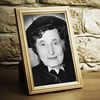A Jew from Yekatrinoslav in Lemberg
On my way to America in 1946, I stopped in Lemberg [Lvov] for a week in order to procure some necessary documents. While there, I stayed with several other travelers. Our arrangements there were clandestine, and my identity had to remain secret.
As happens so often in life, it turned out that the landlord of the house where we were staying was from Yekatrinoslav. One evening, when I walked out of my room, he struck up a conversation with me. He told me that the Rav of his hometown, Yekatrinoslav, had been exiled and had passed away in exile. He praised the Rav—according to his perception—and described how respected he was in the city, and how unforgettable he remained to that day.
Not recognizing me, he related how once he had brought the Rebbetzin several kilograms of sugar to send to her husband in exile.
Later I recalled that this was correct. Sugar was then unobtainable in the city, and his son, who managed a government store, had sent me the sugar through his father, in order to send it to the Rav in a food package.
Mordechai Gurary
Whenever my husband found an opportunity to speak publicly [on Jewish themes], he utilized it. Here is an example:
A teenage boy named Mitya Gurary1 began frequenting our home. His father2 was employed in our city at the business of his relatives, the Gurary family. When Mitya first visited us, he wasn’t religious and was studying at the local high school. He possessed a very sincere and refined character.
After becoming acquainted with our sons, Mitya began attending my husband’s Chasidic discourses. Gradually he became very devoted and attached to this philosophy and way of life. He became Shabbat observant and G‑d-fearing in every respect.
Even before his matriculation, his fellow students and teacher noticed that he had become more religious, and started persecuting him. As a result, it became difficult for him to be accepted into the university, and many obstacles were laid in his path. The dean of the university once told him, “Let Schneerson help you; we can’t help you.”
When it came to a point that they couldn’t reject him any longer, he was finally accepted. For his winter break, however, he was sent to work at a kolkhoz (collective farm). Every day letters from him arrived at our home, full of queries about what was or wasn’t halachically permitted for him while there.
Sometimes he was sent into town on official errands to purchase supplies for the kolkhoz office. To make some spare cash, his fellow students who accompanied him would bring along some butter and other farm products to sell in town. Mitya, however, sought out Jews living there and inquired as to their religious needs. His briefcase was full of mezuzot, tzitzit, siddurim and alef-beit cards, which he secretly distributed in accordance with the Rav’s directives.
Openly, he pretended to be a fully committed Komsomol member He was well-liked by everyone, even the gentiles.
He would say his prayers daily wearing his tefillin, but dared not let any human being see him. Before daybreak, when most others weren’t yet awake, he would go out into the fields, and there, among the tall grain stalks, was able to conceal his short frame while reciting his prayers, covering his head tefillin with his cap.
His superiors were very pleased with his work. As a reward, he was told to stay at the “Little Red Corner,”3 from where he was expected to spread the cultural light to the villagers.
When it was Chanukah, he received instructions from my husband on how to manage with the Chanukah lights, and everything worked out well.
That week, however, the central office in the city sent in an inspector, who happened to be Jewish, to check on the work at the kolkhoz. He arrived around midnight, and when he visited the “Little Red Corner,” found the Chanukah lights still burning. Although they were comprised of oil burning inside hollowed-out potatoes, he, as a Jew, immediately understood what they were.
Of course, as was their “holy custom,” it was immediately reported to the Komsomol, and a few days later Mitya was dismissed from the job.
He continued his studies with similar acts of self-sacrifice for even the slightest halachic detail, even if only of rabbinic origin. On the High Holidays, he would pray at our home so that his neighbors wouldn’t notice his participation in prayer services. In the morning he would report to the university to register his attendance before coming to us.
A strictly religious funeral
Mitya was already working on his doctorate when once, during the summer,4 he went to bathe in the river5 and drowned. It was a shocking tragedy. He was his parents’ only son and was also very well-known in the religious Jewish community.
Mitya’s passing had a profound impact at the university. The administration sent to the family one delegation after another expressing their willingness to cover the funeral expenses from government funds because of the high regard in which they held their deceased son.
Mitya, of blessed memory, had a sister6 who was also very refined and sincere, but was a Communist. She had been appointed secretary of the Komsomol’s party cell at Petrovsky’s metal plant7—a high-level post which few were privileged to reach.
The university delegations included Communist party members, who addressed their requests concerning her brother’s funeral arrangements to his sister. She replied that her parents were religious, and therefore, as a Communist, she could not intervene in this matter.
Meanwhile, she hurried to our home. Weeping, she implored my husband, “Rabbi, I know that Mitya would have wanted whatever you want, and whatever directives you give, we will fulfill.”
Obviously, the funeral was strictly religious, since Mitya had been religious. Jews old and young participated, and the streets were packed with people. His body was carried to the shul his parents attended, and it was there that he was eulogized.
An official delegation from the university, including many students and several lecturers, stood to a side and didn’t directly participate.
The Rav’s eulogy
The shul’s gabbayim brought a table out into the street and asked the Rav to address the assembled. For more than an hour he described Mitya’s religious lifestyle and how he had maintained his religious conduct, both during his studies and at home, with courage and fortitude. My husband addressed the young people, pointing out how one can be religious without it disturbing one’s association with the secular world.
The Rav’s words had a tremendous impact on his audience. Many were convinced he would be arrested following the delivery of such a speech. But this happened in 1935; he wasn’t arrested until 1939.
The funeral did, however, have one negative effect. In 1936, Mitya’s sister was expected to be appointed to the Komsomol “inner sanctum”—the Communist party itself. Yet she was rejected and told, “No!” For having sought Schneerson’s guidance for her brother’s funeral, she was not yet considered deserving of such a privilege. In the course of time, she was told, her case may be reviewed.
It’s inexplicable how the authorities had discovered this. Perhaps it was “the birds of the sky . . .”8 His sister asserted that she had told no one, nor did anyone from our home reveal the information. It’s amazing how they discover everything in that country.
The funeral and the Rav’s eulogy were topics of discussion among a wide range of social circles for long afterwards.
When I later traveled through Moscow and Paris, several people told me how they couldn’t forget the stories my husband told them about the Rebbes, etc. They reminded me how he used to “live” the story. For example, there is the story about the Baal Shem Tov’s gentile servant, Alexi, who once saw a shochet prepare his slaughtering knife by rubbing his saliva over it to make it easier to sharpen. He commented, in Russian, “Isrolik [the Baal Shem Tov] didn’t do it that way. He would cry and use his tears to make it easier to sharpen.”9 When my husband would tell this story, his face would turn very red, large tears streaming down his face! Not everyone experiences a story so deeply or becomes so transported into the world of the story’s character.









Join the Discussion